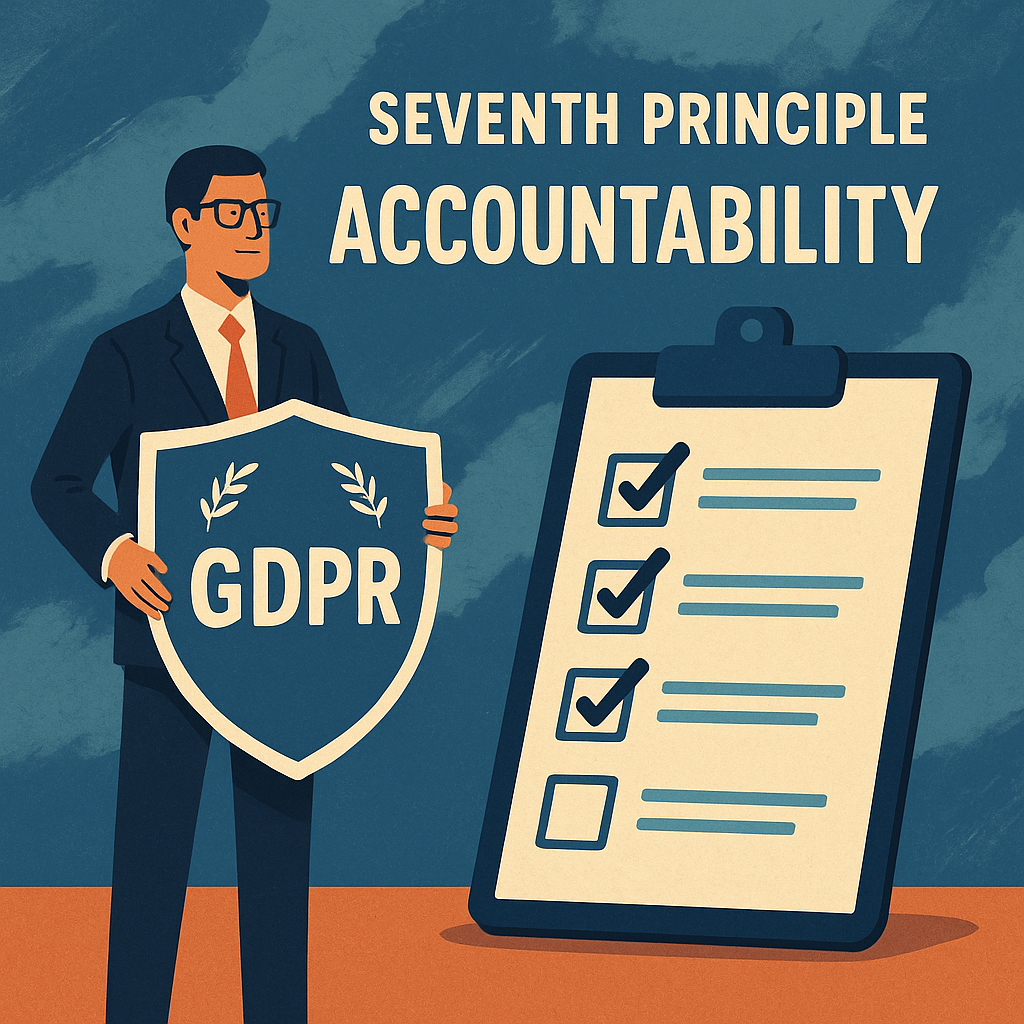Who’s Got the Wheel? The Power (and Weight) of GDPR’s Accountability Principle


Let’s say your company throws a lavish dinner party. The guests arrive. The food is spectacular. The music, just right. But then—something goes wrong. Allergens weren’t labeled. Someone gets sick. A guest’s bag goes missing.
Now imagine the host says,
“Oh, the caterer handled that.”
“That was the DJ’s responsibility.”
“I didn’t know.”
Wouldn’t fly, would it?
Because when you’re the host, you’re responsible. Full stop.That, in essence, is GDPR’s seventh and final principle: Accountability.
It says to organizations: “You’re in charge. You decide what data to collect, how to use it, and how to protect it—so you are also responsible for doing it right.”
Beyond Just Compliance
This isn’t about ticking boxes or filing paperwork for the sake of appearances.
Accountability is active. It’s ongoing. And it’s on you.
It requires you to not just comply, but to prove that you’re complying. That means:
- Maintaining detailed data processing records
- Conducting privacy impact assessments
- Embedding privacy by design in new systems
- Appointing data protection officers, where applicable
- Training your team, consistently and meaningfully
It’s not enough to say, “We take data privacy seriously.”
You have to show how.
The Mystery Vendor?
Imagine this: your marketing team hires a third-party vendor to run a lead generation campaign. Everything’s going well—until six months later, someone discovers that the vendor was collecting far more data than agreed, storing it insecurely, and even reusing it for other clients.
Disaster.
And guess what? Under GDPR, you’re still accountable.
Because you chose the vendor. You set the terms. You should’ve had oversight.
This principle forces companies to stop passing the buck.
You can outsource a function—but you can’t outsource responsibility.
What Accountability Feels Like (When Done Right)
At first glance, accountability might sound burdensome. But in practice, it builds clarity, confidence, and trust.
When everyone in your organization understands their role in data protection—when the policies are clear, the training is real, and the leadership walks the talk—accountability becomes culture, not just compliance.It’s the difference between saying, “That’s legal’s job,” and asking, “How do we make sure we’re doing this right—together?”
The Takeaway
Accountability is the invisible thread tying all the GDPR principles together. It reminds us that rights come with responsibilities. That decisions come with consequences. And that good intentions don’t matter unless they’re backed by actions.
So ask yourself:
📌 Do we know what data we’re collecting and why?
📌 Can we demonstrate that we’re using it lawfully and safely?
📌 Are we building privacy into our everyday decisions?
If the answer is yes—you’re not just complying with GDPR.
You’re earning trust. And that’s the real win.
P.S. This article is the final part of our special 7-part GDPR series, where we’ve unpacked each principle with real-world examples, relatable stories, and zero jargon.
If you’ve just joined us, scroll back and check out the full set—each one designed to make privacy a little more human and a lot more interesting. 🧠💡
Because understanding GDPR isn’t just for lawyers or techies—it’s for all of us.